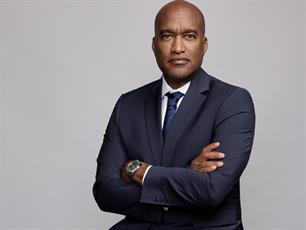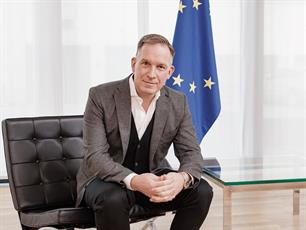Diana Marszalek 15 Sep 2022 // 2:11PM GMT

WASHINGTON — Federal legislators ramped up their probe into PR firms’ work for fossil fuel companies Wednesday with a congressional hearing that investigated the industry’s role in spreading deceptive information.
In the far-reaching, and often partisan, hearing held by the Oversight and Investigations Subcommittee, witnesses, including former Edelman executive Christine Arena, charged PR firms with running deceptive campaigns that position Big Oil clients as much more involved in fighting climate change than they really are. Congressional leaders have focused their efforts on five firms — DDC Public Affairs, FTI Consulting, Singer Associates, Story Partners, and Blue Advertising —none of which attended the hearing.
“Sixty percent of all super oil messaging contains a green claim yet less than 12% of their capital expenditures (are spent on) on those green activities, and that’s even lower for Exxon and Chevron,” said Arena, a climate activist who now runs her own production company, Generous Films.
It’s incumbent on agencies to have the scientific literacy (which Arena said is either “too low or non-existent”) to evaluate Big Oil’s claims around climate change — and incumbent on government to police the information going out, she said.
Rutgers University associate professor Melissa Aronczyk said PR’s accountability in Big Oil’s misleading messaging runs deep. PR is not only disseminating ideas and information “it is coming up with those ideas and creating that information,” she said.
“We have a record of compromising behavior by specific PR firms with devesting effects on the health and welfare of the American people," said Aronczyk, likening PR's Big Oil and Big Tobacco work. "But until now the PR firms have remained out of sight."
Colorado activist Anne Lee Foster told committee members that she was harassed and intimidated by fake protesters hired by a PR firm when she tried to get support for a proposed fracking ban — tactics so aggressive that it hurt her mental health. “They were incredibly sophisticated and widespread,” she said.
A committee spokesperson said that Singer Associates, Story Partners, and Pac/West Communications declined an invitation to attend the hearing.
FTI, meantime, did not participate as it is still in the process of turning over information on climate change campaigns requested by the committee, saying that it has been working to reconcile the government’s request with client confidentiality agreements.
In August, the two House Democrats leading the efforts — Arizona Rep. Raúl M. Grijalva, the House Natural Resources Committee chair, and California Rep. Katie Porter, who chairs the committee’s oversight and investigations subcommittee — threatened to subpoena FTI Consulting if the firm doesn't turn over information on campaigns for big oil clients.
“The work FTI Consulting’s strategic communications professionals provide for clients in all sectors of the economy is consistent with our company’s climate and net-zero commitments. We continue to cooperate with the Committee, just as we have since receiving its initial request,” said Mark McCall, global head of FTI’s strategic communications division.
Wednesday’s hearing was the latest development in an ongoing push to see agencies cut ties with the world's biggest polluters.
In January, more than 450 scientists called on PR and advertising firms to stop working with fossil fuel companies.
The effort was coordinated in partnership with the Union of Concerned Scientists and Clean Creatives, an ad and PR industry advocacy organization which, in November, launched a high-profile celebrity and influencer campaign calling on Edelman to drop fossil fuel clients, most notably ExxonMobil.
Two weeks earlier, Edelman unveiled a series of actions it pledged to take in response to those calls, which include walking away from companies that do not meet a series of criteria on climate action. At that time, Edelman identified 20 emissions-intensive clients for follow-up discussions after a 60-day review of its portfolio.
Edelman, however, stopped short of dropping fossil fuel companies across-the-board, saying its work pushing clients toward achieving net zero goals is more productive than walking away.


































.jpg)






.tmb-135x100.jpg)











